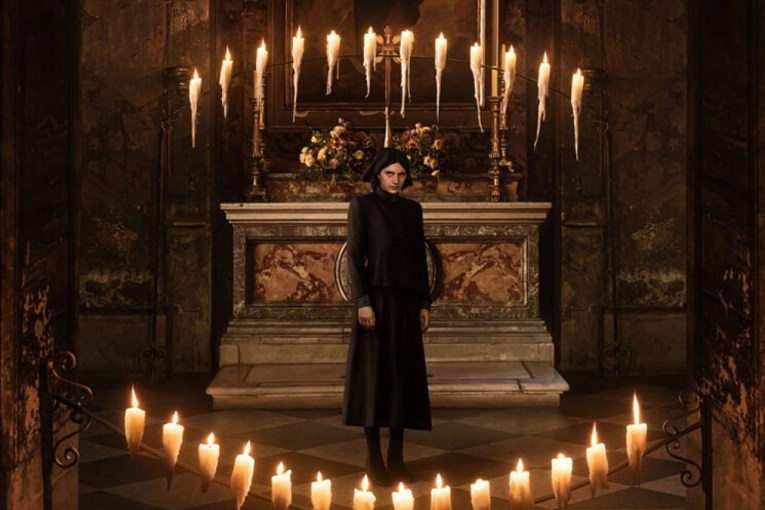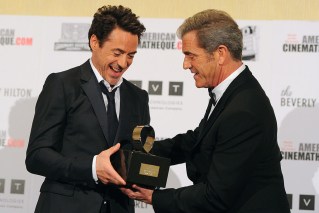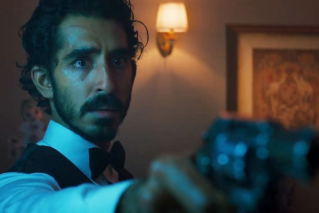Movie theatres v home screens: The real reason cinemas are emptying

Increasingly reliant on franchises, movie box office is falling while home audiences are becoming rusted on. Photo: Getty/The New Daily
My teenage son arrived home from viewing the new Marvel movie Spider-Man: Far From Home, describing it as “surprisingly good”.
“I suppose I’d better go and see it then,” I replied limply.
Then he registered his displeasure on learning the family binge-watched Stranger Things without him.
This exchange seemed to capture all that’s wrong with modern cinema: Movies are often now attended through a weary sense of duty, while television is the more inventive vehicle through which families and workmates engage with pop culture.
Consider the water-cooler conversations and Twitter commentary that tracked Game of Thrones’ final season like a hungry dire wolf. Did Avengers: Endgame generate the same?
The exhaustive over-reliance on film franchises may indeed be driving cinema viewers towards subscription TV.
Blame Star Wars and Raiders of the Lost Ark, I suppose, but the astronomical rise in movie production costs has resulted in an almost crippling case of studio risk-aversion.
Franchises are guaranteed money spinners. At least, they were.
The disastrous $147 million opening weekend for Men in Black: International had Sony executives reaching for the smelling salts before their world righted itself with Far From Home’s opening-week take of over half a billion dollars.

Zendaya and Tom Holland get tangled up in mega-hit Spider-Man: Far From Home. Photo: Marvel Studios
And after the triumph of 2017’s Logan, which led some critics to predict a debut superhero best picture Oscar nomination, Dark Phoenix crashed the X-Men franchise into the side of a bus with an anticipated worldwide run of $360 million against a $288 million budget.
During the 1980s, the major studios’ default position became ‘franchise wherever possible’, compounding a wretched decade for film.
Some of the most lively, original cinematic vehicles were reduced to chapters in increasingly stale Hollywood product. Compare the fates of two of the decade’s most brilliantly scripted and performed comedies, Tootsie (1982) and Back to the Future (1985).
The plot of the former defied a sequel (no doubt Columbia Pictures thought about it) and the plot of the latter practically demanded one. So as the decade advanced, pictures began to be produced with movie sequels in mind.
If movie franchises are bludgeoning movie-goers into submission, what is television doing so right? Are Netflix and HBO really that experimental?
Well, kind of.
Look at the horror/thriller genre, which launched Hollywood’s love affair with auteur directors in the 1970s. William Friedkin’s The Exorcist was nominated for best picture in 1973, as was Steven Spielberg’s Jaws two years later.
Netflix, in particular, has recognised that experimental horror/thrillers from emerging directors translate to television beautifully.
So David Fincher (Se7en) and Mike Flanagan (Oculus) were lured away from cinema to produce and direct their hit Netflix series Mindhunter and The Haunting of Hill House.
It seems a matter of time before the most daring horror director working today, Ari Aster, finds his way to subscription TV.
Aster made such a terrifying impression last year with Hereditary that his next feature, Midsommar, is awaited with a mix of excitement and dread.

Milly Shapiro, Toni Collette, Gabriel Byrne and Alex Wolff have a family bonding session in Hereditary. Photo: Getty
I’d like to think this represents another trend: A reversion to the 1970s when filmgoers started to attend movies to see the distinctive work of emerging directors.
But all that went with the rise of franchises: Directors are temperamental and some, like The Deer Hunter’s Michael Cimino, lost sufficient money on vanity projects to ruin major studios.
Franchises, in contrast, are director-proof. If trouble erupts, directors can be replaced at little cost to the quality of the product.
This makes the work of modern top-tier directors absolutely vital for the health of the cinema industry.
As astonishing as it is that Christopher Nolan or Quentin Tarantino have never won a best picture Oscar (even Martin Scorsese had to wait until 2007 with The Departed) a new release from them becomes a different kind of event picture.
To evolve beyond the franchise prison, film needs to challenge conventions and audiences like Inception (2010) or Dunkirk (2017) did (or indeed, Nolan’s Dark Knight trilogy).
I recall emerging from a screening of Pulp Fiction in 1994 with two similarly feckless uni friends dazzled by what we had seen. Twenty five years later my son and I have already bought our tickets to Tarantino’s Once Upon a Time in Hollywood, still weeks away.
We want to be dazzled and Spider-Man simply won’t cut it.








